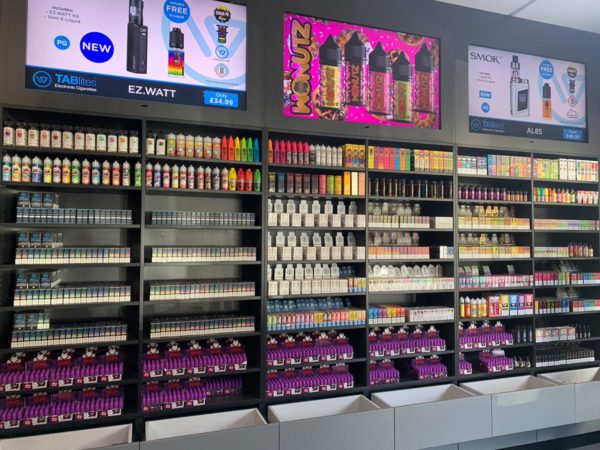How one vape company is approaching the President’s call to ban vapes and e-cigs.
The vape crisis has the country in a frenzy. Some say we should ban all vaping products. Others say we should do nothing and let the market sort itself out. Here’s what know:
- At least 47 people have died from vaping. The CDC tested 29 of them and found that 82% of them were vaping products with THC.
- More than 2,000 people have suffered lung injuries
- Many of the deaths and injuries are related to illegal products
These numbers pale in comparison to the injuries and deaths related to alcohol and cigarettes. It’s estimated that 88,000 people die annually from alcohol-related causes. Cigarette-smoking leads to 480,000 deaths per year, while over 16,000,000 Americans live with cigarette-related diseases. Cannabis products, however, are considered medicinal, and thus, any deaths associated with these products are a siren for concern. That’s why some politicians, including the President, have called for a ban on vaping products.
However, is a flat-out ban warranted?
We asked that and a few other questions to a founder of Lock and Key Remedies, Oleg Maryasis, who happens to agree with President Trump that vape products should be banned. Here’s a nuanced look into his position and why he agrees with the ban.
EM: Obviously the headlines that we’re reading talk about the people who are dying, and hundreds more who are experiencing lung injuries. What are your main concerns with these products right now, if you could point to just one or two?
Oleg: It seems like it’s the vitamin E acetate that’s actually killing these people and that’s devastating, and really goes against everything that it should be. I got into this for health reasons, so to see people dying is horrific. But the main cause of it is the people adding thickening agents. Some of these manufacturers, whether they’re official companies or just making it themselves under whatever company’s title that they’re using, they were just adding these thickeners for a perceived visual effect that it’s pure.
Oleg: And when you’re doing an extract of any of the hemp plants, there seems to be a high content of lead, mercury, arsenic and cadmium present in, or in a lot of the products that are out there, especially if they’re as concentrated as some of the labels claim that they are, since concentrating cannabinoids can also concentrate contaminants. So that’s very important to test. It seems like most brands have opted to use cheap hardware. The reason for variance in pricing is because of the quality of the material, the metals that are being used, or the key element itself. A lot of brands are still using coils and these coils are often made from low-grade metals. So, when you’re activating the heating elements, you’re getting exposure to whatever those other components of that metal are. Oftentimes they’re very, very harmful, toxic. So, you’ve got to have emissions testing on the hardware and that’s very important going forward into the industry.
Question: These sound like problems with regulatory controls. Could we get rid of the harmful players without banning every vape product?
Oleg: Absolutely. But it’s also important to realize a lot of States have pro-vaping laws. New York, for example, has a medical cannabis program that’s anti-smoking but pro-vaping. How do you justify banning vaping but allowing it in a medical program? There’s a lot of these inconsistencies that have not been thought through.
Question: This might also be an education issue, then. What would be your best piece of advice for people who are concerned about these types of products and what they’re putting into their bodies?
Oleg: The education must be towards the importance and understanding of lab testing because that’s really the only way to check what you’re taking. It comes down to a combination of simplifying the lab reports so that people can understand them. It’s going to be the merging of the scientific world with a consumer-friendly visual breakdown of the active ingredients, toxicity levels, or whatever the contents are. On the hardware aspect, you still need the emission testing to see the heating element, the kind of temperatures that this is reaching, and the safe ranges for these types of products. So that’s where the education will come in handy.
Question: Where do you officially stand on the ban right now?
Oleg: I would say that the ban is okay for the short-term, but it needs to be resolved with regulations that are logical and science-based as soon as possible.
To be sure, whether vitamin E acetate is responsible for the deaths or not remains unclear, though the CDC does admit that it appears to interfere with normal lung functioning when vaped. The media around vape-related deaths has incited a tremendous amount of fear around vaping. As a result, some have produced knee-jerk reactions, others have more nuanced ideas about how we should regulate the marketplace.
What do you as a consumer think of politicians moving to ban vape products?
Do you agree with a temporary ban until proper regulations can be set in place to control the market?












